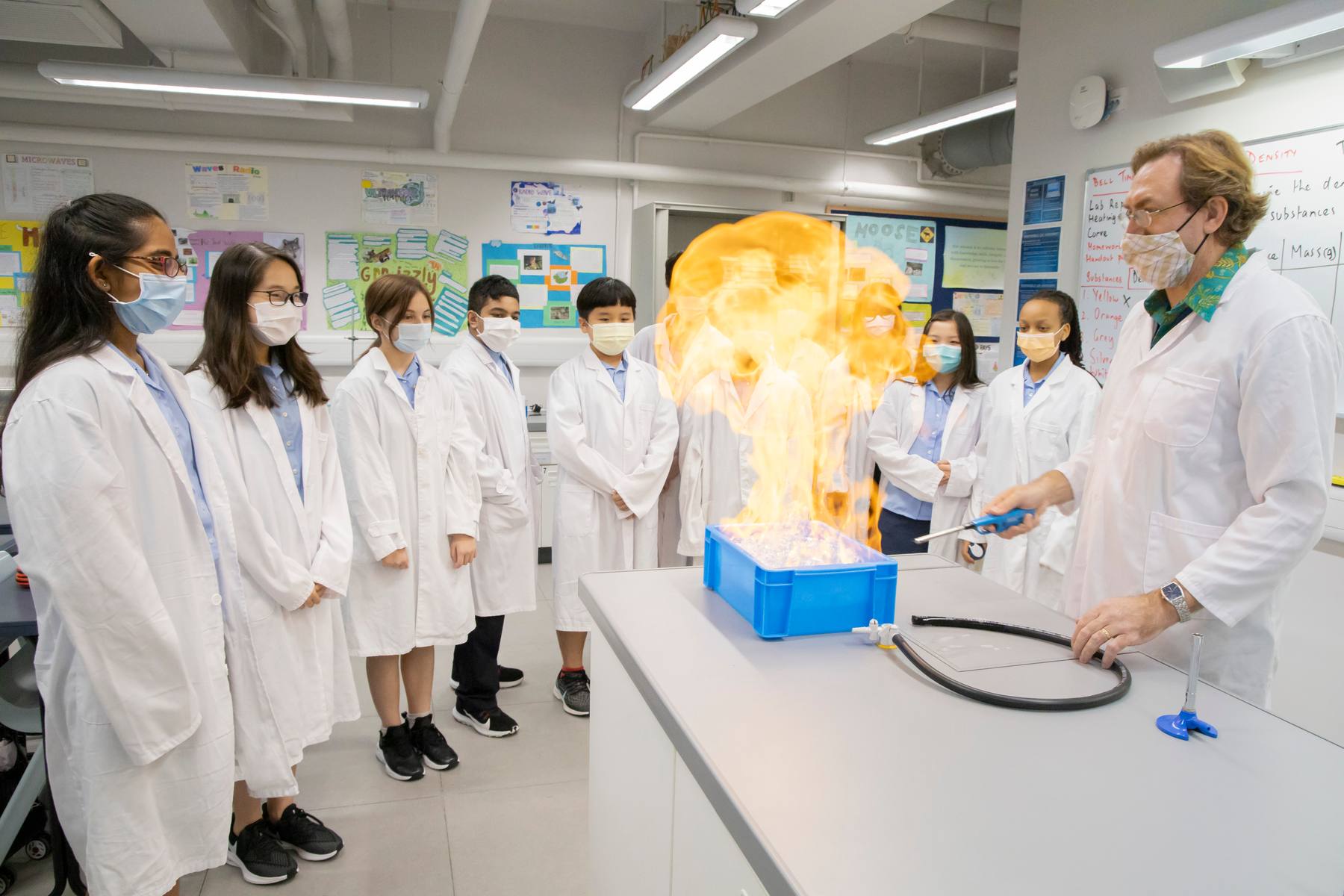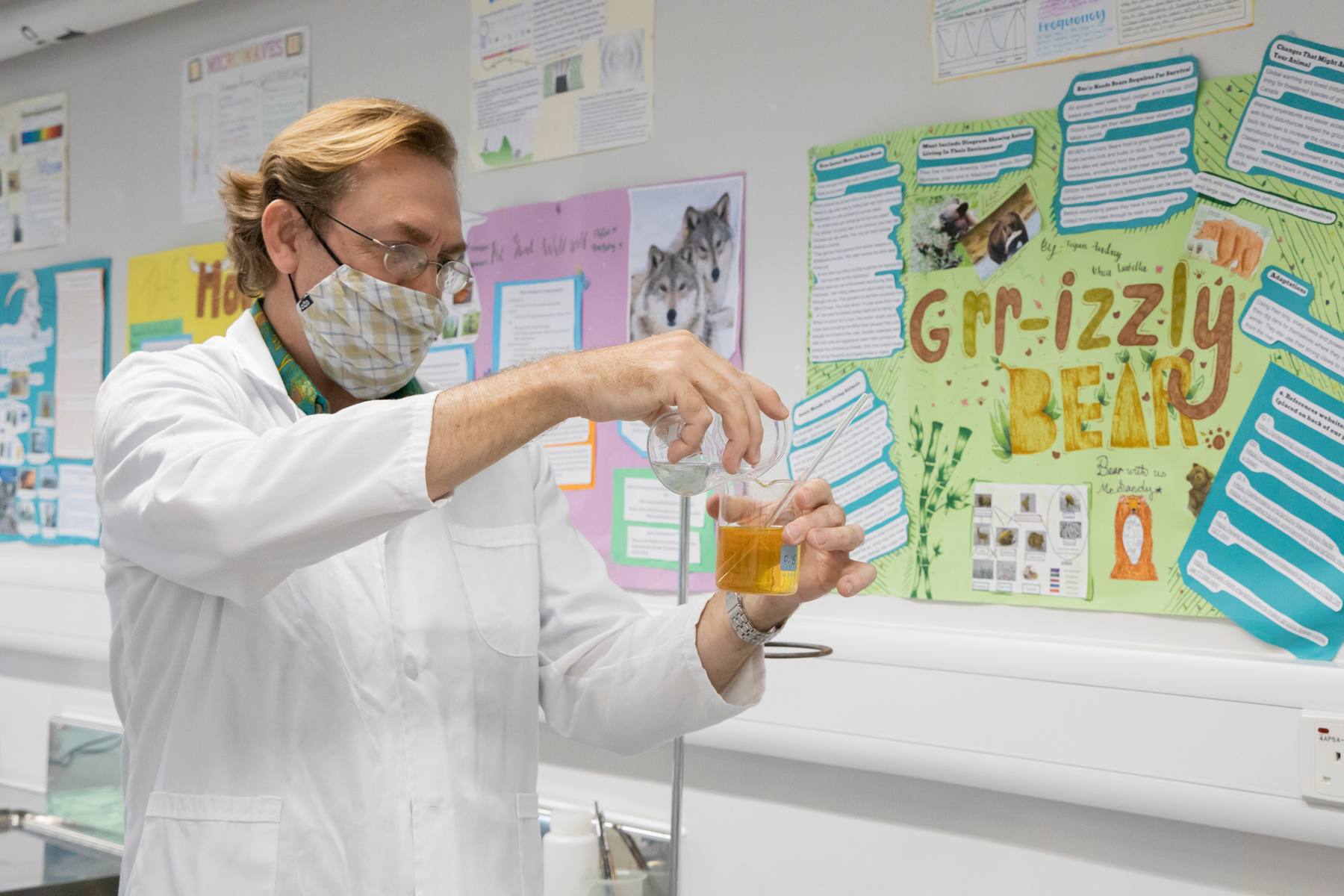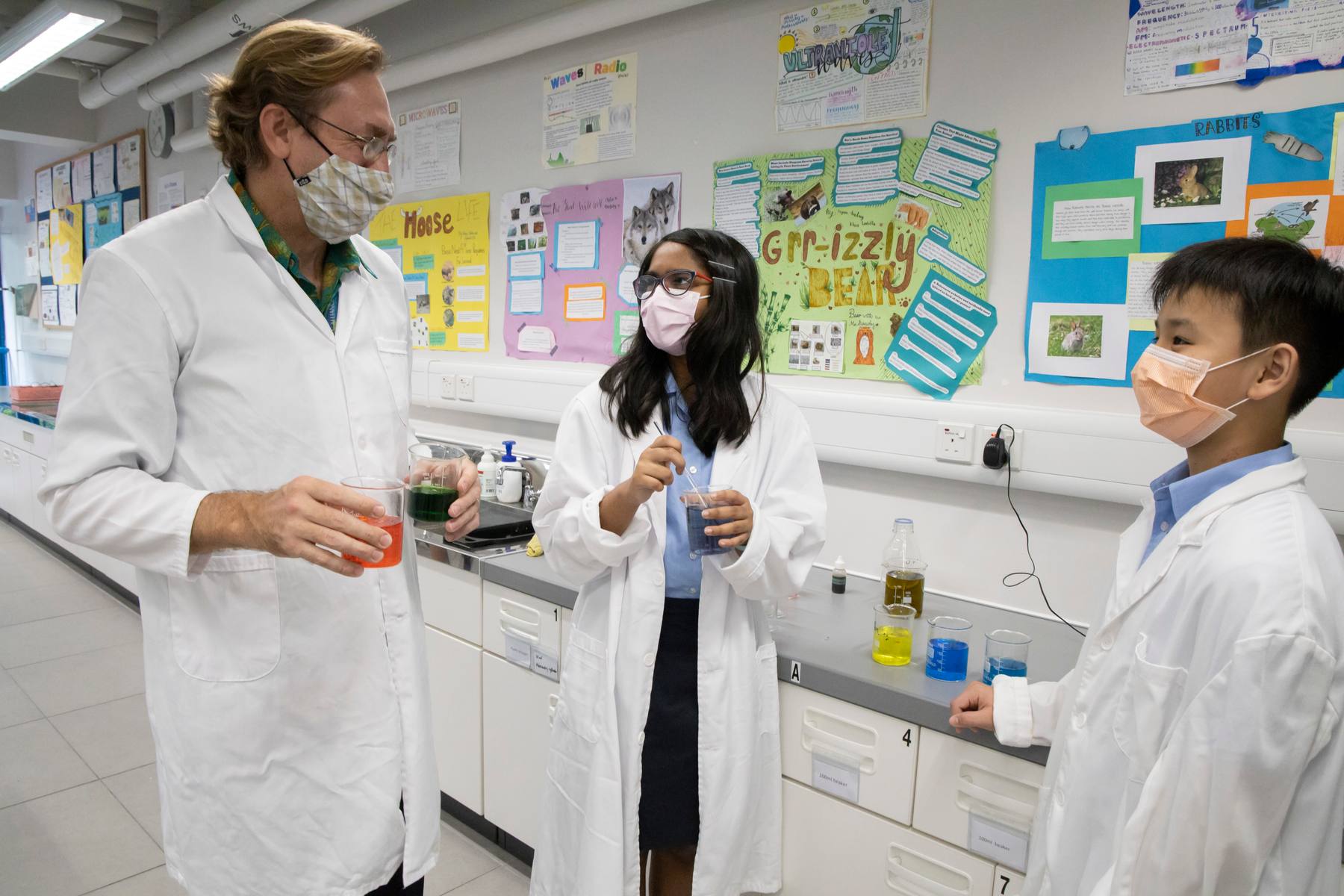What life lessons can we learn through a virtual science classroom
December 11, 2020



When CAIS High School Science teacher James Sandy took his class online during this year's pandemic, he knew he was going to face challenges getting his students—all of whom had no remote learning experience previously —to fully benefit from the lessons he was presenting.
But the maverick educator from Melbourne, Australia who had a brief stint in the United States before relocating to Hong Kong, seized the unique opportunity by upping the game for a better science virtual classroom bridging the gap between traditional and virtual learning.
The geologist and environmental scientist turned innovative science teacher swiftly adapted to the change by leveraging digital technologies to keep his students engaged with science learning in a virtual classroom.
Not only did students join classroom discussions via video conferencing tools, they also revisited the learning materials and downloaded additional resources so that they could learn at their own pace.
While remote learning was taking place, a series of strategic planning was happening behind the scene. James needed to prepare the transition from online to in-person learning and back to online – the biggest adaptive challenge every educator has had to face this year.
After all, this forced transition has not only forced us to move the classroom online, it has also taught us valuable life lessons. We caught up with James to further explore this theme.
What are some of the lessons you’ve learnt from getting students fully involved in remote learning?
Modifying children’s traditional way of learning is the key. Both teachers and students tried to keep a continuity in learning and then adapt to our Covid reality to transform our traditional learning approach.
Technologies have played an important role in helping us to achieve a successful digital classroom. With software like PowerSchool Learning – a learning management and classroom collaboration solution that allows real-time teacher-student interaction; and Zoom – a cloud platform that provides a virtual space for online learning to take place, students are able to continue to learn, in untraditional ways – which is not a surprise given an untraditional year.
What were some of the challenges you faced during this transition? How did you overcome them?
With challenges come opportunities, both students and I have been finding creative ways to overcome the never-before-imagined obstacles of being disconnected from traditional classrooms.
For instance, when real excursions are not an available option, we turn to “virtual” excursions to help connect students to new ideas and discovery, rather than just watching me talk onscreen.
Another challenge for me is to understand the learning progress of my students when they learn new concepts or work through assignments. With the help of digital tools, students can interact with me online and ask questions or join discussions in ways like traditional classrooms where conversations happen organically.
How has technology changed our approach to learning/ interact with science during Covid?
Digital tools facilitate two-way communication between teachers and students. They are an important platform for us to form conversation and discussion when we are refrained from on-campus learning during Covid.
We might all have struggled initially when adjusting to learning and teaching online. But the process has taught us critical life skills: agility, problem solving and communication.
With digital platforms, students are able to access digital textbooks anytime, which essentially is a big help to supplement our online lessons.
Plus, students are quick learners. They are able to pick up new technologies and get used to virtual learning easily.
What’s the importance of a science education?
Getting students of different ages, genders and backgrounds to appreciate science is important. Technology and science are about creating the ‘wow’ factor. Science education is important because it’s about improving lives and alleviating sufferings.
This year CAIS – and globally – had the biggest adaptive learning experiment and students were rewarded with the opportunity to take charge of their learning, giving them the independence they crave!
And most importantly, I think we all realize online learning is not a terrible idea and can be personal to some extent, with the help of online learning tools.
Most memorable experience at CAIS?
This year when we had to engage students in remote learning, I was impressed by our students who were just proactive learners. They were the driving force for a collaborated virtual classroom.
CAIS is not the first school that I worked with. But I have been given the opportunity to have an impact on students, for which I am very grateful.
I am driven by the good learning attitude of students, appreciation and satisfaction of parents. It’s not an overstatement to say that I look forward to coming back to school every day.
The cordial faculty relationship is also another factor that gives me great encouragement.
